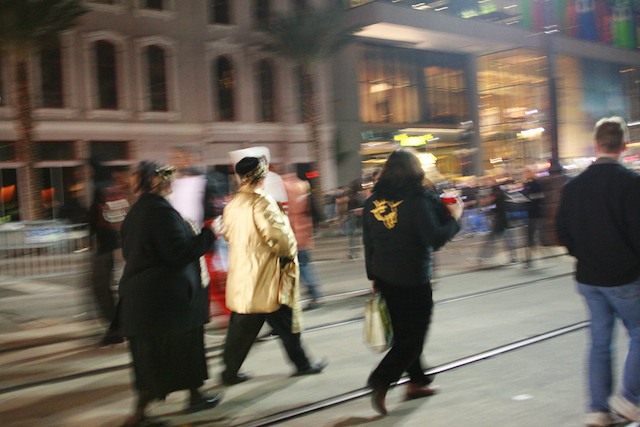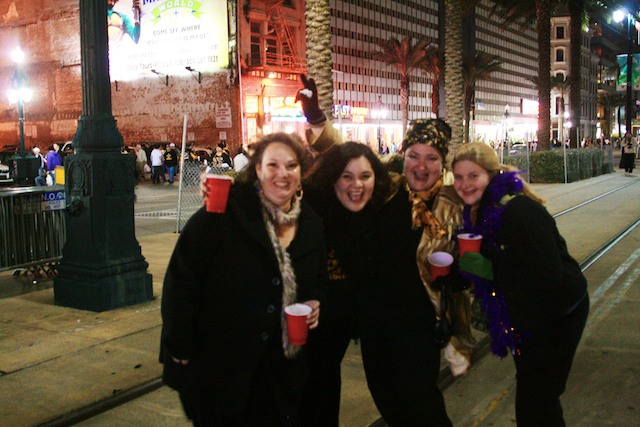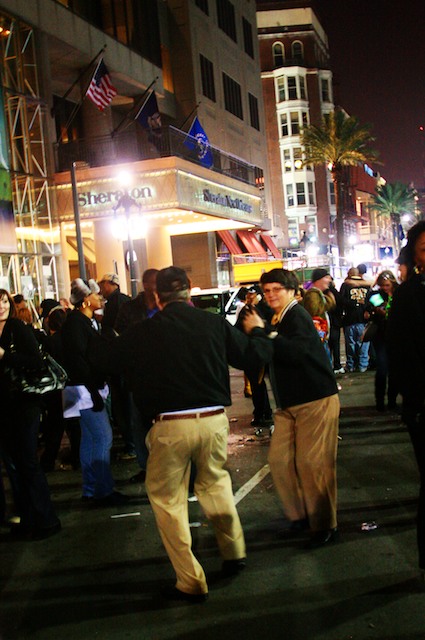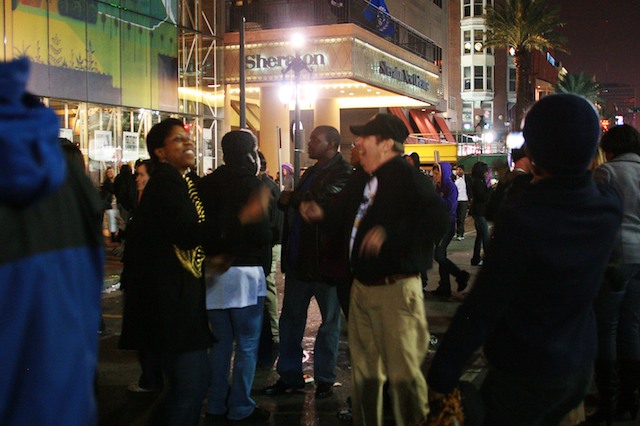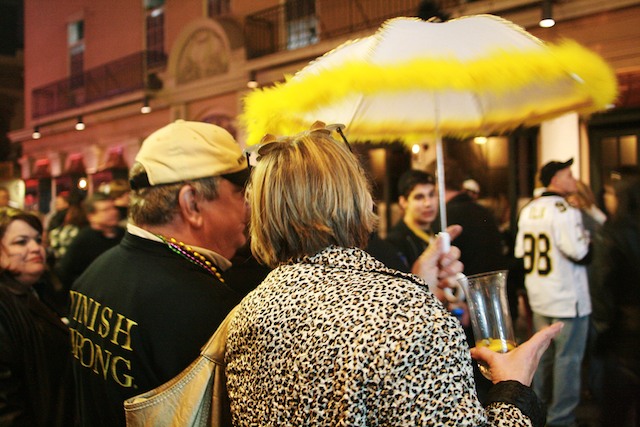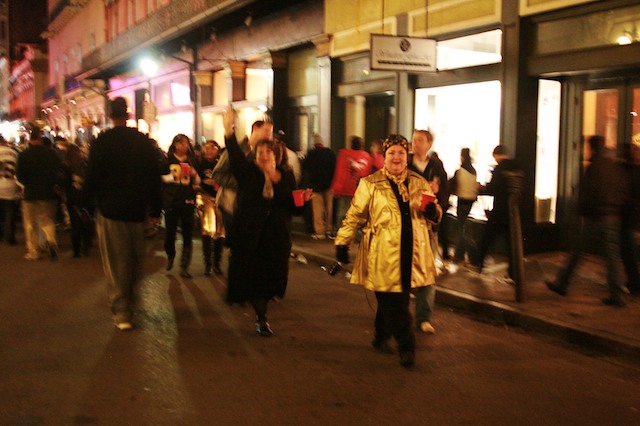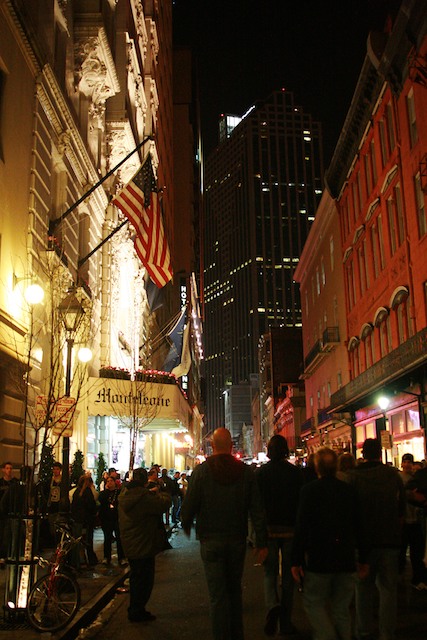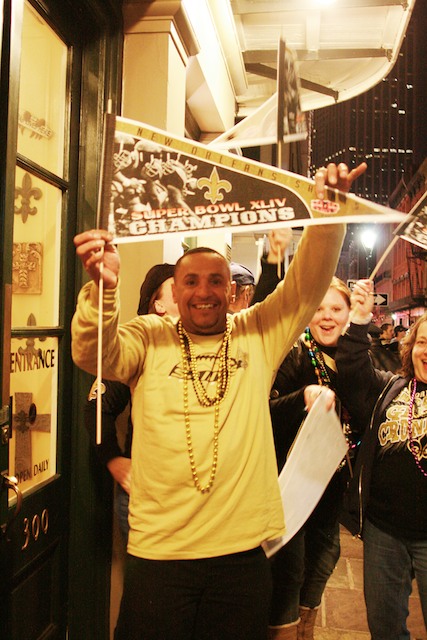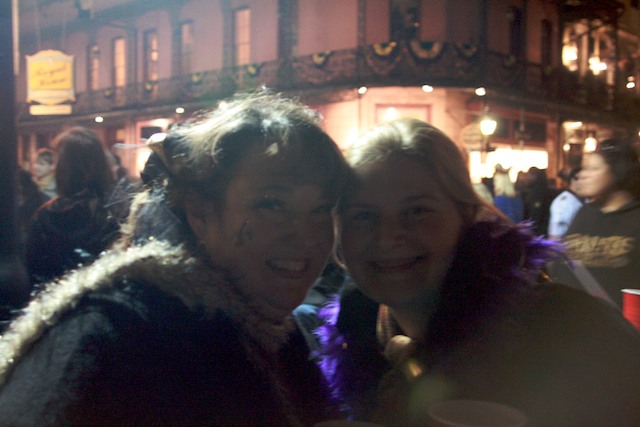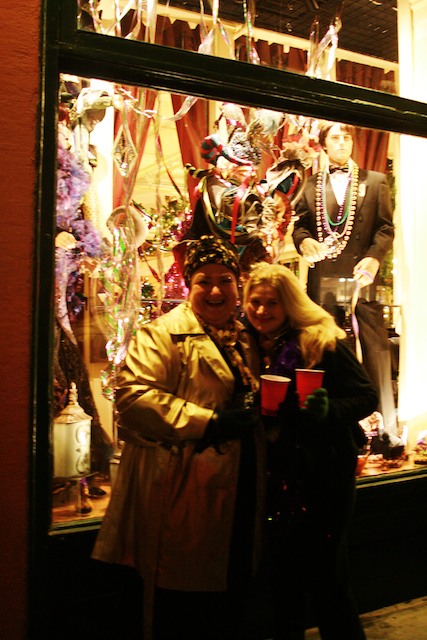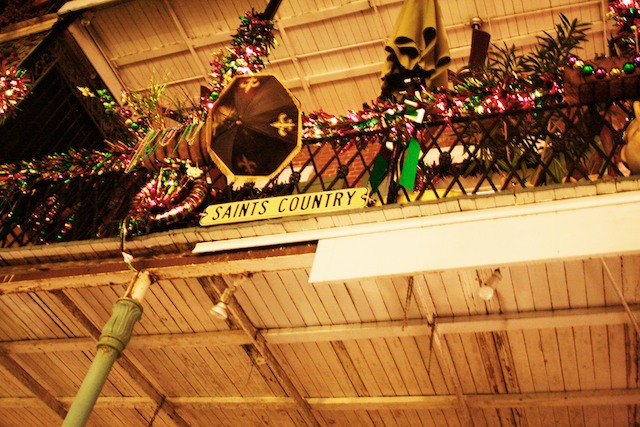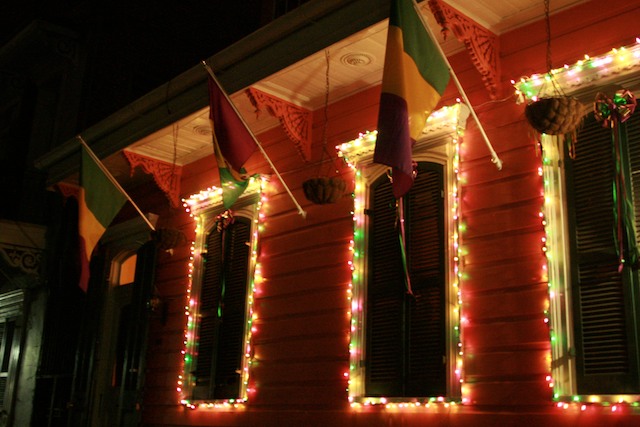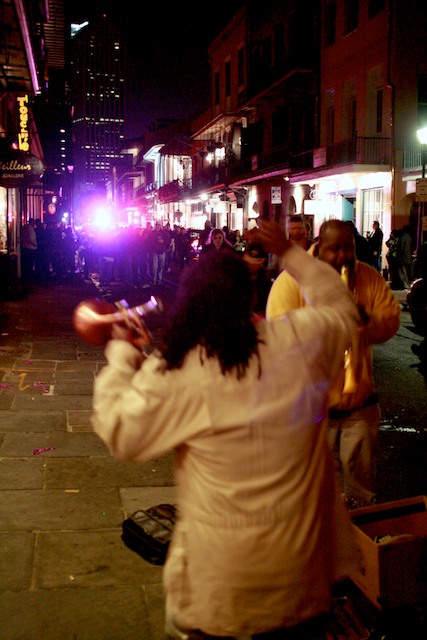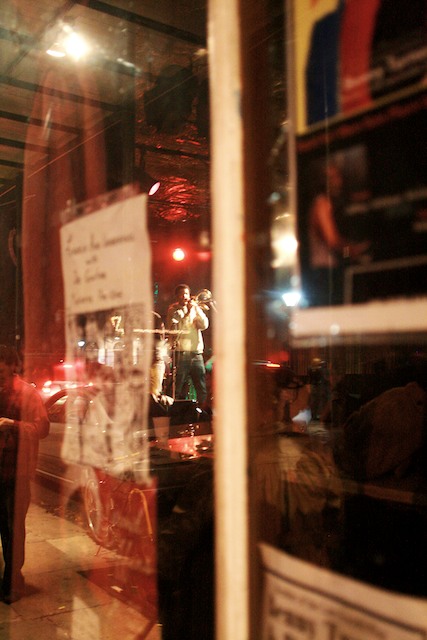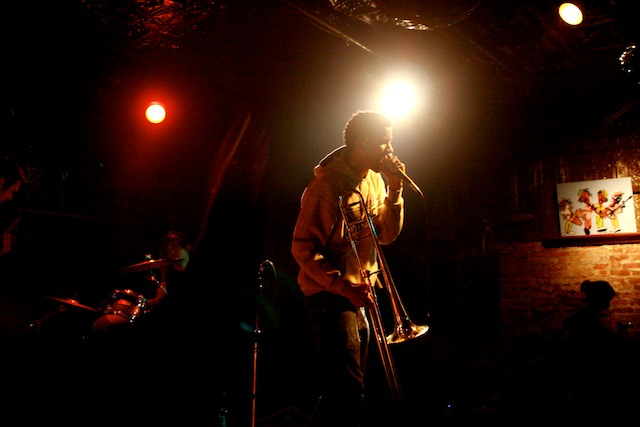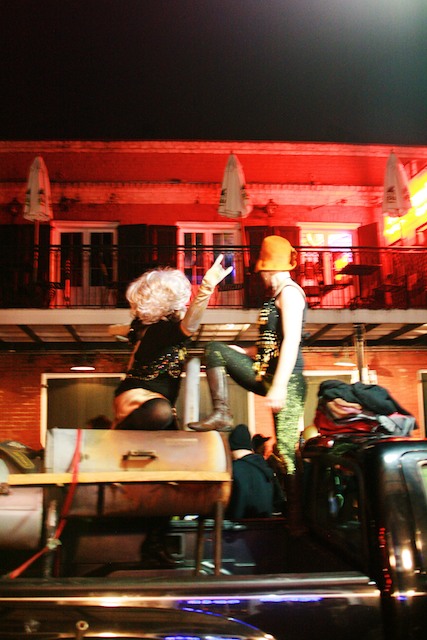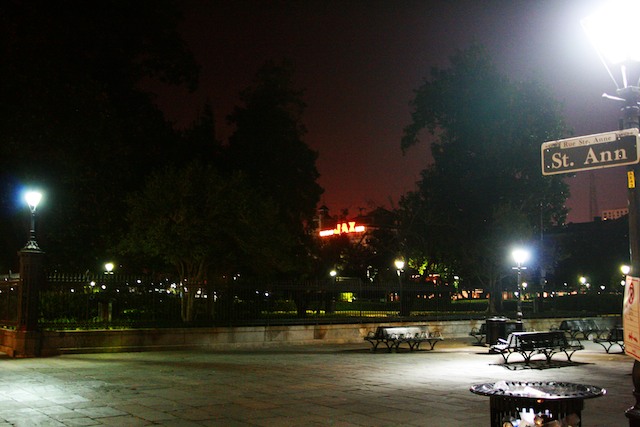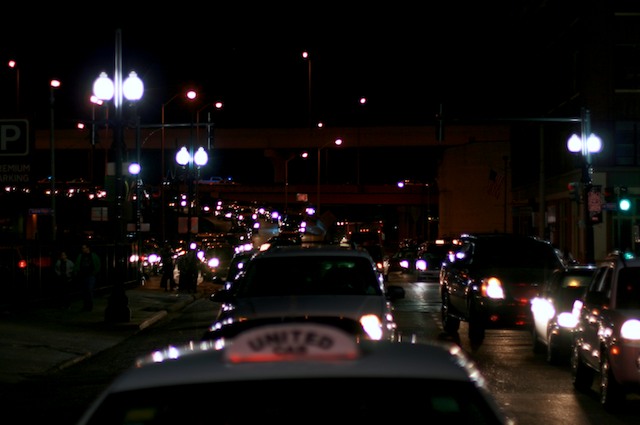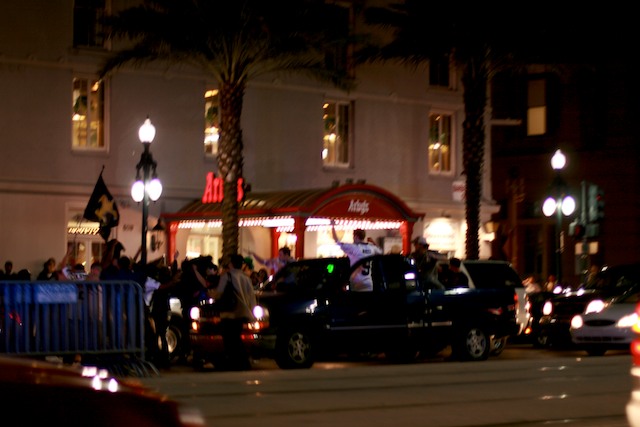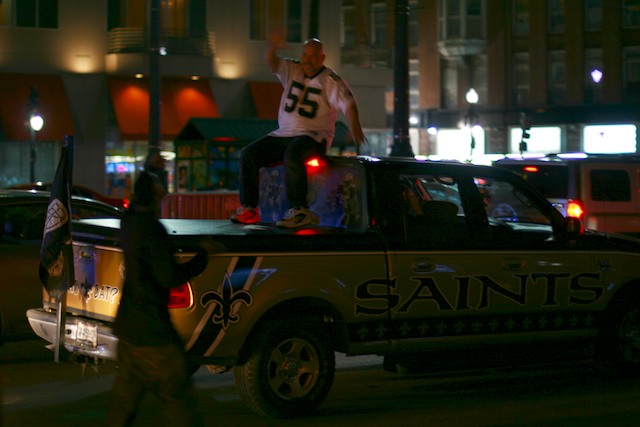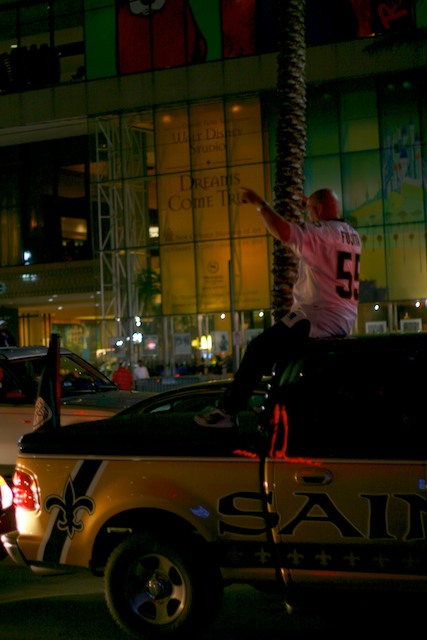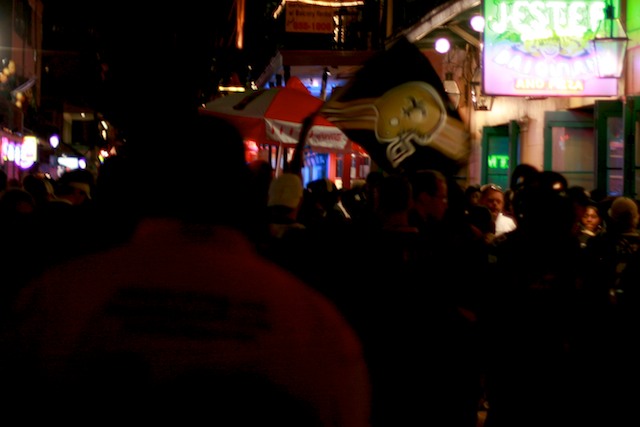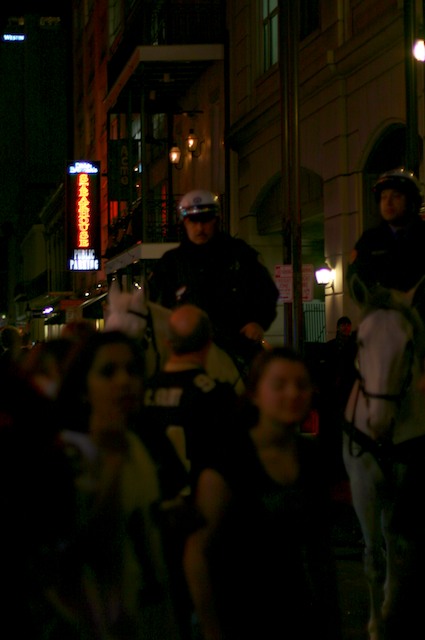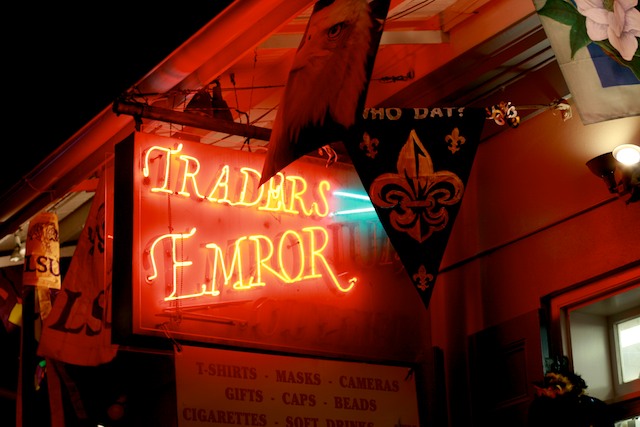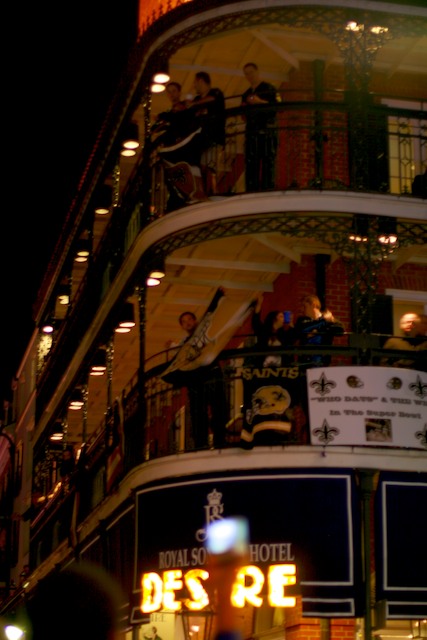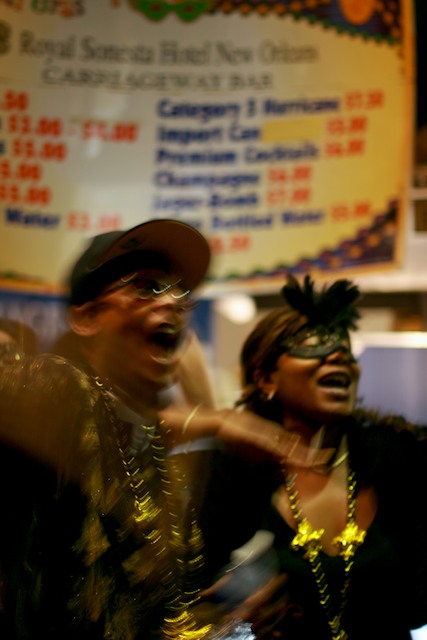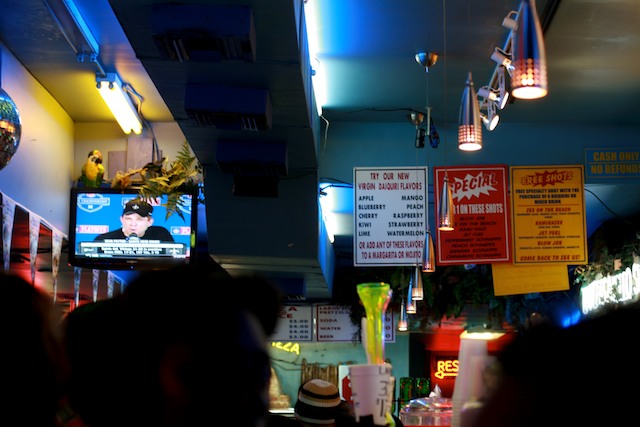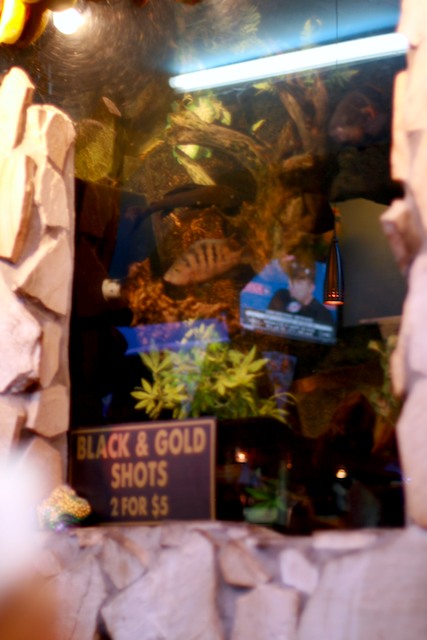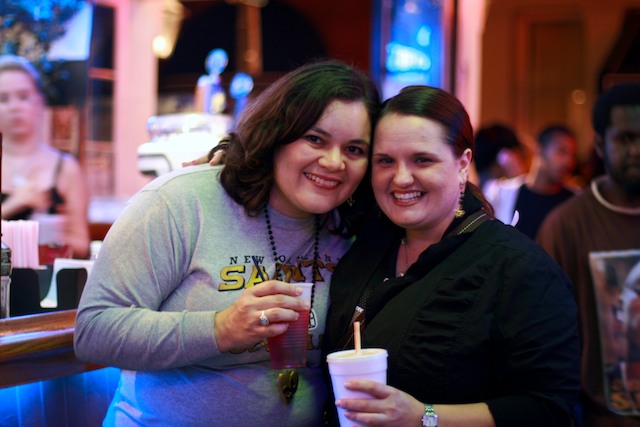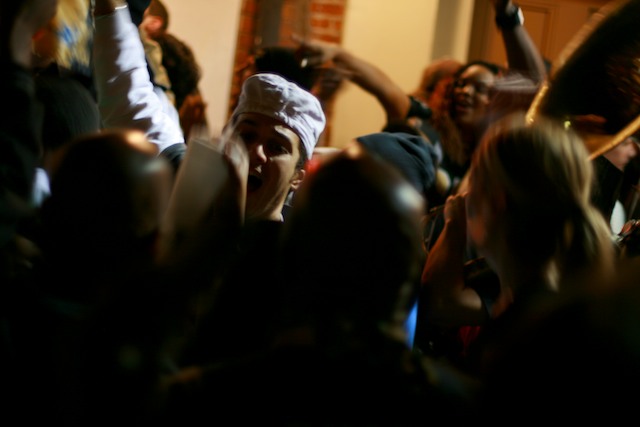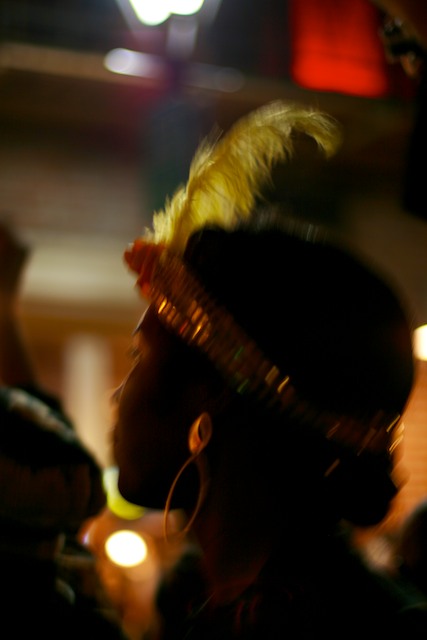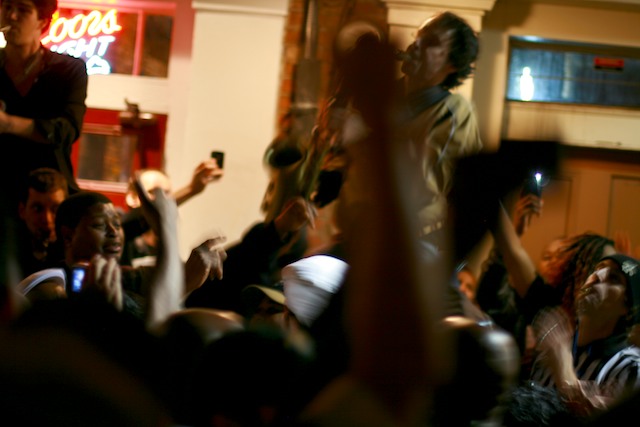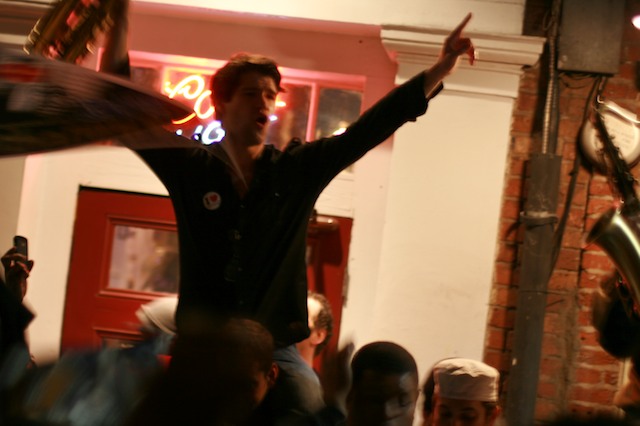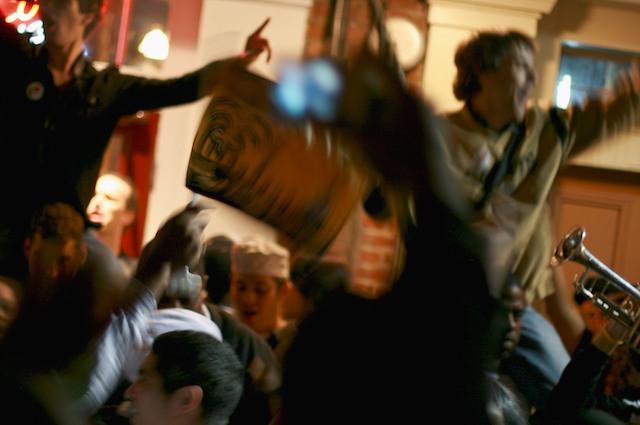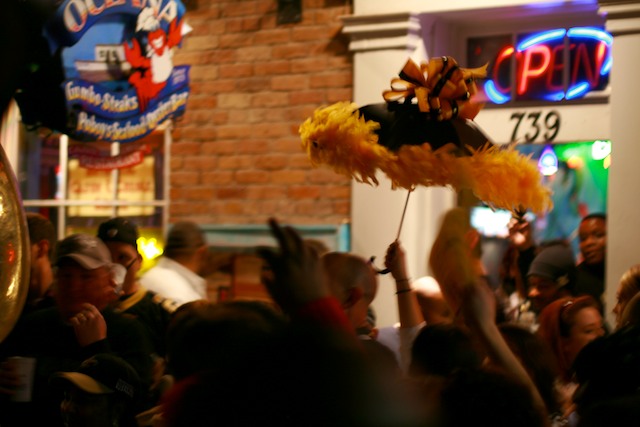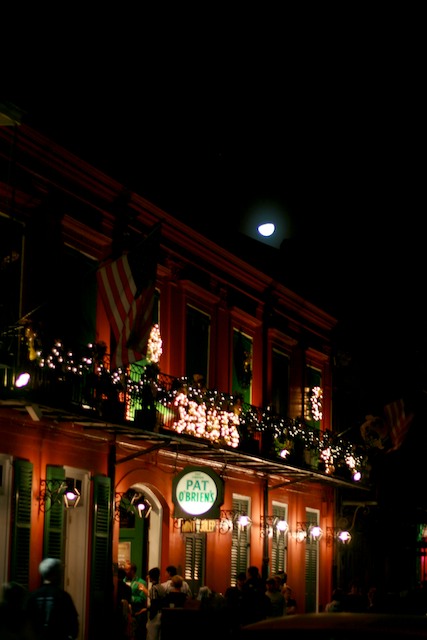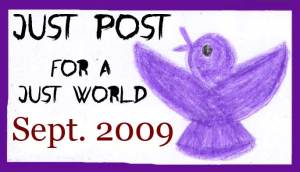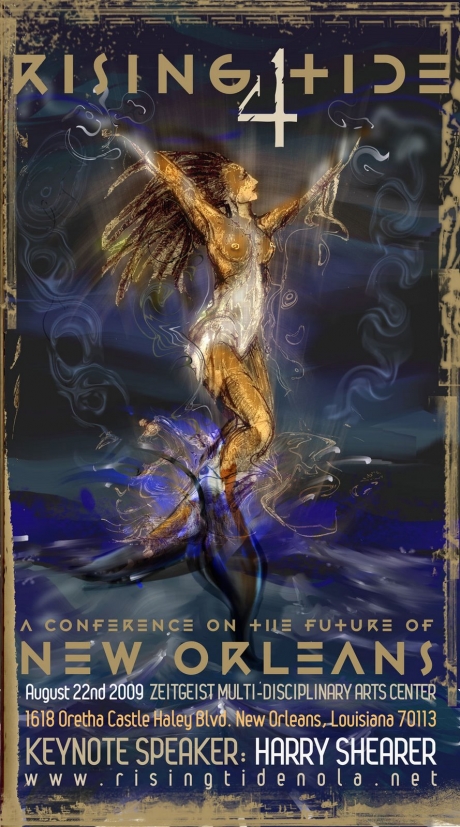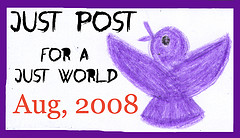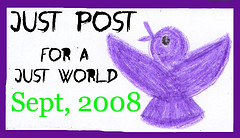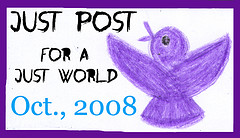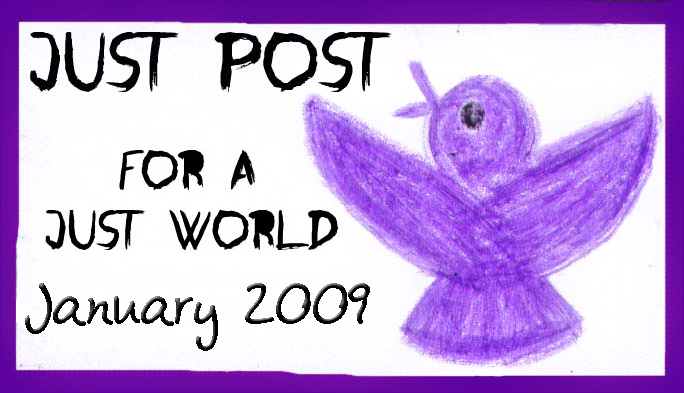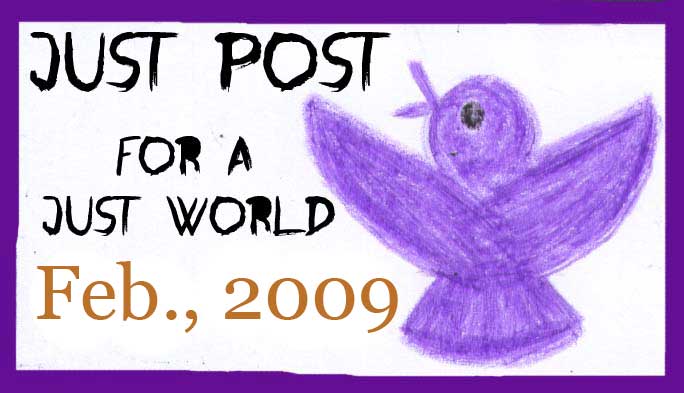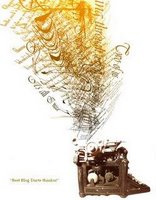Right after All Things Considered, just moments before the classical hour begins, our local public radio station has the owner of a consulting firm give advice in minute’s time. They call it “The Louisiana Rebuilds Minute.” We call it “The WWOZ Minute.” (A friend coined the term, meaning that this is when he switches the radio to the local music station for that minute).
The idea of the Minute is that the people of Southeast Louisiana are too stupid to realize that it just takes a web search to find the answers to all problems related to an unprecedented rebuilding of an American city. Since we’re too idiotic to figure it out, The Minute does it for us. Paul and I have been joking for years that we would make a “Louisiana Rebuilds Minute” Generator — you just add in a common post-Katrina problem, throw in some patronizing ‘pull yerself up from yer bootstraps’ talk, and suggest that one consulting firm’s website has alllll the answers. Insert those few tidbits, press enter, and BOOM, you’ve got your manufactured minute.
The point that The Minute doesn’t get is that JUST BECAUSE there is one organization out there with funds to build playgrounds, doesn’t mean that every school that needs one and applies will get it. JUST BECAUSE one bus is available to a few folks who have the magic combination of ills and scripts to qualify for reduced medicines doesn’t mean that everyone who needs meds can get them. And JUST BECAUSE The Road Home offered funds to some families doesn’t mean they have all that they need to rebuild their homes and lives. Just because there are programs and grants and applications and dollars out there doesn’t mean that they are thought through, that they are honest, that they actual reach the people that they are meant to reach, and that they make any impact at all in the outcomes of our daily lives.
It is easy to get mislead.
It is easy to think that ideas are either good or bad.
I’m not so sure. If I have learned anything from being a part of New Orleans’ recovery, it is that EVERYTHING is mired in thick, silty gray.
And in the middle of all that mess sits Charity Hospital.
One of the big discussions flying around Southeast Louisiana surrounds Charity Hospital. Until Katrina, Charity was the second largest hospital in the country and one of the oldest continuously operating hospitals in the world. It was the primary source for health care for many of New Orleans’ poor. Actually, considering that many of Charity’s former patients have not seen a physician since Katrina, technically, Charity is still their source for health care… it’s just not open for them to receive it.
In fall 2007, Jim Aiken, the LSU University Hospital Chief of Emergency Medicine who worked the Emergency Department through Katrina and the aftermath, came to a class I was assistant teaching. His fascinating lecture included discussion of Charity’s pre-storm emergency plans, his experience of the storm and flood from within Charity, how he helped coordinate emergency care in the extended aftermath, and finally some of the issues involved with long-term planning for health care for the city. At every step, the issues are overwhelming at best — but what struck me was his passionate and pointed arguments for medicine, good medical care, and services to the community. He left me convinced that we need to rebuild a top-tier medical facility in this city, one that serves the poor within it, both because it draws good doctors to gain experience within it and because providing care to those who wouldn’t otherwise receive it is as important in this community as drinkable water and drivable streets.
A little over a week ago, the Schweitzer Fellows held our second symposium. This one was on “The State of Health in Louisiana” and Dr. Larry Hollier, chancellor of LSU health sciences center (encompassing the training programs for all allied health fields at LSU), was one of the speakers. His presentation was about the new LSU health sciences center — a center which is desperately needed, but is incredibly controversial in how it plays out.
The issue is that Louisiana’s doctors come from LSU graduates… by no small amount. The physicians practicing in the State are close to retirement age by overwhelming numbers, and the physicians coming out of LSU are not the type to stick around and take their places. Even before Katrina, LSU was seeing a substantial increase in the numbers of foreign-trained medical students who were ‘matched’ to attend LSU for their residencies — these are students who tend to go back to their home countries after residency. There were also increases in ‘matches’ with students for whom LSU was not a top choice… indeed, has not been a first choice for many in recent years. In addition to bringing in students who are not necessarily going to stick around… LSU has not been attracting the best talent, who are going to get picked up by the more desirable residency programs. Post-Katrina, these enrollment numbers have been even more dire, suggesting that the outlook for Louisiana to have competent, young physicians to support the State’s medical needs into the future is grim. Dr. Hollier argued that plans for a new science center were in place long before Katrina, and that the need for an expanded, updated center for treatment, training, and research was critical to the survival of health care in Louisiana.
And I believe him.
Don’t get me wrong: my impression of the guy was that we’d have some seriously different views on just about any medical or social issue… but the numbers and his argument was compelling. More than that, it completed echoed my experience as a student: my peers don’t stay. Heck, *I* am having trouble figuring out how we’re going to stay. Even if Paul had gainful employment, the fact is that the research dollars to study health inequalities in our city don’t go to researchers in New Orleans. If I want to stay involved in research here, it seems like I need to move to Chapel Hill or Ann Arbor or Boston or wherever in order to do it. (I’ll save this rant for a later date.)
I think that we need a commitment to a new, state-of-the-art facility to attract new talent, house research programs, and rebuild health infrastructure in the city.
Dr. Hollier spoke ONLY of the LSU plans — NOT the combined VA plans. In the LSU plan, only 33 homesites are impacted over an area that encompasses more empty parking lots than businesses or homes. (The VA plan, as outlined in a wonderful advocacy website, impacts many more people and historical properities.) He argued rationally that the Charity hospital building could not be retrofitted to the needs of the new center and any expansion did not include parking or other supportive infrastructure necessary for that sort of facility. He suggested the renovation of Charity as apartments for residents.
Everything that I know about New Orleans and the way things work make me question people in power — question their motives, question their reasoning, wonder about what they haven’t considered. (In contrast, it also has shown me that New Orleanians are some of the most change-resistant people on the planet… but possibly for good reason.) Yet, I am compelled to WANT this new center. I WANT a place where I can collaborate and build and learn and serve. I’m EXCITED about the possibility of this center… it makes me want to be here, stay here, work here.
Those first couple of blocks closest to I-10? The ones that are predominantly occupied by empty parking lots? I can’t think of a better use than to build a new science center.
But. The rest? Well. I’m uncertain about this. Because I feel that Dr. Hollier would drive through a community like lower Mid-City and not see a community worth saving. He wouldn’t necessarily see a pattern of New Orleans rolling over yet another predominantly African-American community for the sake of progress. Or, maybe he would — maybe he would but he would argue it was necessary for the common good. And sometimes? Sometimes I believe in the common good, even if it stomps all over individual rights. Early public health efforts involved holding people down for immunizations against their will… and that is WHY we were able to control disease. Sometimes common good is a good answer.
BUT! Common good should come out of insight and input from the community. That’s what it’s all about. I’m not convinced that LSU are taking alternative plans seriously. I don’t understand why the RMJM Hillier plan isn’t feasible and while I am not convinced it is the right place to go, I do think it signals to LSU that it needs to look for compromise.
And I’m worried that this will be locked in years of debate and at the end, the people of New Orleans will continue to suffer for lack of a comprehensive medical center and a generation of medical talent will slip through our fingers.
There is no easy answer here. And I’m sort of all knotted up inside over it because it involves my field (public health) and my passion (community-level advocating/organizing) — with one tromping on the other in the name of common good.
Got anything good for this one, Louisiana Rebuilds Minute? What website of yours solves this??
(If anyone still reading has thoughts, comments, insight, or ideas… I’d love to hear them.)
